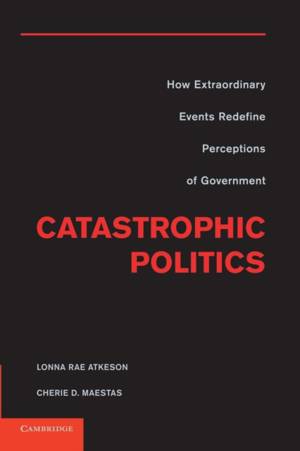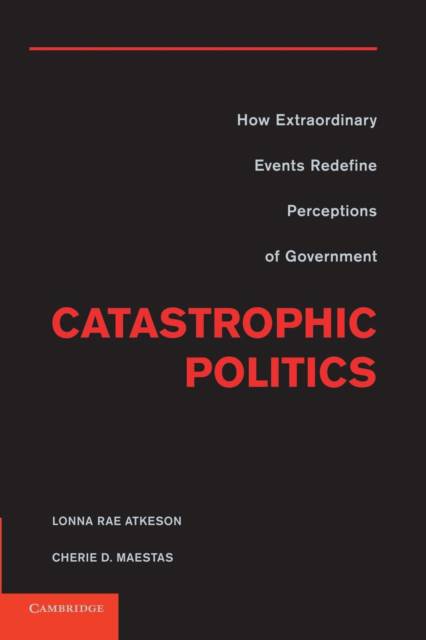
- Afhalen na 1 uur in een winkel met voorraad
- Gratis thuislevering in België vanaf € 30
- Ruim aanbod met 7 miljoen producten
- Afhalen na 1 uur in een winkel met voorraad
- Gratis thuislevering in België vanaf € 30
- Ruim aanbod met 7 miljoen producten
Zoeken
Catastrophic Politics
How Extraordinary Events Redefine Perceptions of Government
Lonna Rae Atkeson, Cherie D Maestas
Paperback | Engels
€ 64,95
+ 129 punten
Uitvoering
Omschrijving
Shocking moments in society create an extraordinary political environment that permits political and opinion changes that are unlikely during times of normal politics. Strong emotions felt by the public during catastrophes - even if experienced only vicariously through media coverage - are a powerful motivator of public opinion and activism. This is particularly true when emotional reactions coincide with attributing blame to governmental agencies or officials. By examining public opinion during one extraordinary event, the aftermath of Hurricane Katrina, Lonna Rae Atkeson and Cherie D. Maestas show how media information interacts with emotion in shaping a wide range of political opinions about government and political leaders. Catastrophic events bring citizens together, provide common experiences and information, and create opinions that transcend traditional political boundaries. These moments encourage citizens to reexamine their understanding of government, its leaders, and its role in a society from a less partisan perspective.
Specificaties
Betrokkenen
- Auteur(s):
- Uitgeverij:
Inhoud
- Aantal bladzijden:
- 276
- Taal:
- Engels
Eigenschappen
- Productcode (EAN):
- 9781107630741
- Verschijningsdatum:
- 6/03/2014
- Uitvoering:
- Paperback
- Formaat:
- Trade paperback (VS)
- Afmetingen:
- 152 mm x 229 mm
- Gewicht:
- 371 g

Alleen bij Standaard Boekhandel
+ 129 punten op je klantenkaart van Standaard Boekhandel
Beoordelingen
We publiceren alleen reviews die voldoen aan de voorwaarden voor reviews. Bekijk onze voorwaarden voor reviews.







